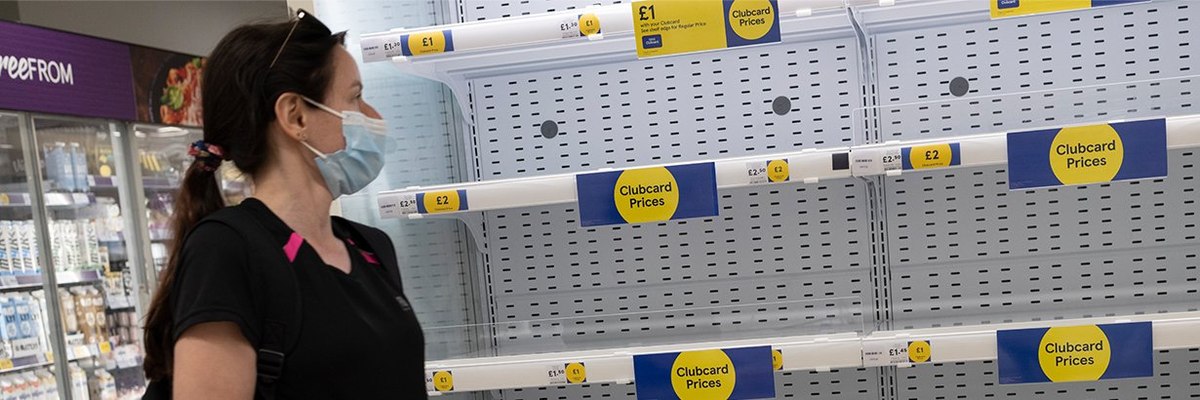How people voted at the referendum even affects the extent to which they've noticed the shortages at all
In recent weeks there has been a growing issue with a shortage of delivery drivers, with the media reporting widely on supermarkets, fast food restaurants and pubs facing problems with their supply chain. Many commentators have associated this problem with Brexit.
Asked what the main reason is for the reported shortage of drivers and supply chain issues, 41% of people said Brexit, 25% the impact of the coronavirus, 11% working conditions for drivers and 7% drivers' pay.
However, there's a big contrast between the views of Remainers and Leavers. Among those respondents who voted Remain in 2016, 65% of people blamed the supply chain problems mostly upon Brexit. Among those respondents who voted to Leave in 2016, just 21% said the problems were due to Brexit. Leave voters are most likely to say that coronavirus is the key to the recent shortages (37%), and they are also more likely than Remain voters to think that drivers’ pay or conditions are the biggest part of the problem.
In fact, even opinions on whether there are shortages appear influenced by people's existing views on Brexit. Most people who voted Remain say they have noticed shortages on the shelves to a large or significant extent (55%), but only 40% of Leavers do.
As with most other political events, our reactions to the drivers’ shortage are largely driven by our existing views. If you are someone who thought Brexit was a thoroughly bad thing, then you are more likely to blame it on Brexit. If you are a supporter of Brexit, then you are more likely to find another reason.
So, whatever the long-term outcome of Brexit, don't necessarily expect public opinion to rapidly change. Many perceived negative impacts of Brexit will only be blamed upon Brexit by those already opposed; many positive impacts will only be accepted by those who were already in favour.









